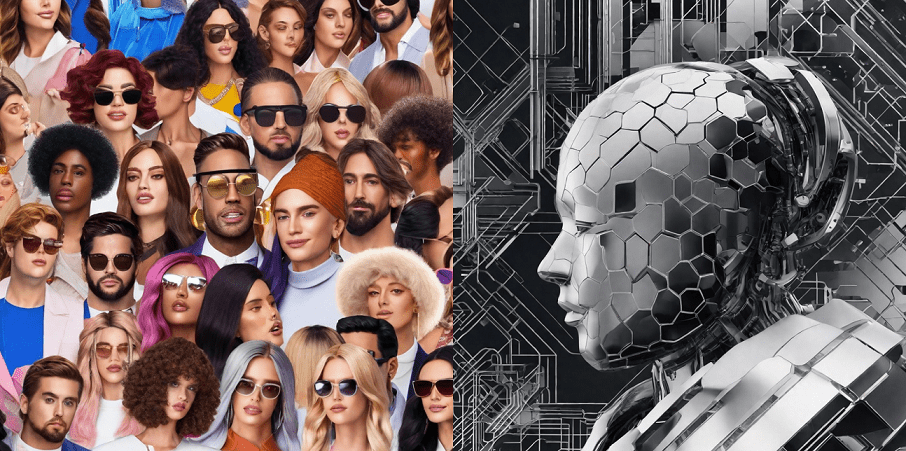
In the fast-paced world of social media marketing, a new phenomenon is reshaping the landscape: hyper-realistic, AI-generated influencers. Aitana Lopez, with her pink hair and over 200,000 followers, may seem like just another social media sensation, but there's a catch—she's entirely fictional, a creation of artificial intelligence (AI). As brands increasingly turn to these digital avatars for promotions, concerns are growing among human influencers about the potential erosion of their income and the broader threat posed by generative AI.
Aitana, developed by the Barcelona-based agency The Clueless, has attracted attention for her ability to seamlessly blend into the influencer space. Diana Núñez, co-founder of The Clueless, explained that the motivation behind creating virtual influencers was a response to the soaring rates charged by human influencers. "The rest is history. We unintentionally created a monster. A beautiful one, though," she said.
Luxury brands have already forged high-profile partnerships with virtual influencers, from Kim Kardashian's KKW Beauty with Noonoouri to Louis Vuitton with Ayayi. Instagram analysis of an H&M ad featuring virtual influencer Kuki revealed a broader reach and a 91 percent decrease in cost per person remembering the ad compared to traditional ads.
While virtual influencers may not influence purchases like their human counterparts, they are proving effective in driving awareness, favorability, and brand recall, according to Becky Owen, global chief marketing and innovation officer at Billion Dollar Boy.
Brands find working with virtual influencers appealing for several reasons, such as reduced costs and total control over the messaging. The negative associations linked to human influencers, perceived as fake or superficial, make the idea of AI or virtual influencers more palatable to consumers, notes Rebecca McGrath, associate director for media and technology at Mintel.
However, human influencers argue that their digital counterparts should disclose their artificial nature. Danae Mercer, a content creator with over 2 million followers, expressed concern about the difficulty in discerning virtual influencers' authenticity.
The rise of virtual influencers has prompted discussions about disclosure rules. While the UK's Advertising Standards Agency is monitoring the situation, there are no specific regulations requiring virtual influencers to declare their AI origins. India, on the other hand, mandates disclosure for virtual influencers.
Critics argue that the lack of transparency is troubling, with some virtual influencers not explicitly stating their artificial nature. Lil Miquela, one of the first virtual influencers, has worked with renowned brands like Burberry and Prada, charging substantial amounts for deals. However, the team behind Lil Miquela believes that the storytelling element in virtual creators cannot be fully replicated by generative AI.
The Clueless, creators of Aitana, emphasizes transparency by using the hashtag #aimodel in the profile but acknowledges that not all virtual influencers follow suit. The debate extends beyond disclosure, with discussions about virtual influencers potentially reinforcing stereotypes and perpetuating a specific image.
In response, some agencies argue that their virtual creations aim to foster inclusivity and provide opportunities to groups that have historically faced exclusion. Francesca Sobande, a senior lecturer in digital media studies, raises concerns about the motivations behind giving virtual influencers certain characteristics, suggesting it may be driven by profit-driven marketing strategies.
While the debate continues, one thing is clear—AI-created virtual influencers are reshaping the influencer marketing landscape, prompting discussions about ethics, transparency, and the future of human employment in the digital age.